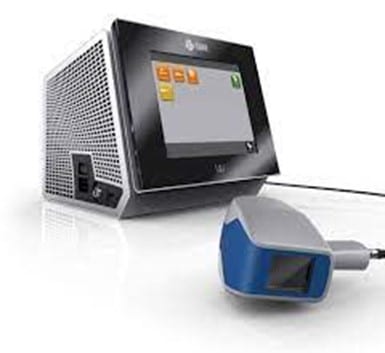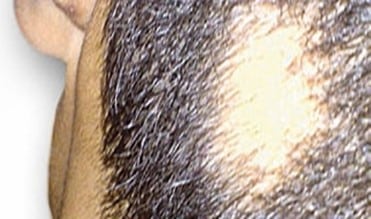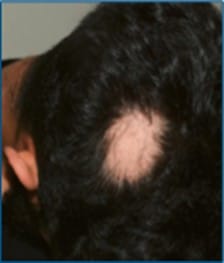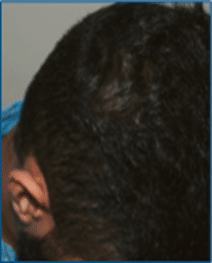ALOPECIA AREATA
(The Exys (excimer ) laser 308 nm)
EXYS 308 nm laser (Solihull Medical Cosmetic Clinic exclusive )
Our clinic treats this embarrassing condition using a combination of steroid injections and excimer laser 308 nm treatments as well as skin hair follicle treating serums and LED light therapy.
Using a world class medical grade excimer laser the wavelength of energy delivered is enough to stimulate hair regrowth. We are the only clinic in the UK to treat this condition with a combination of excimer laser and steroid injections. Multiple weekly treatments are required to treat this inflammatory condition.

What is alopecia Areata?

Alopecia areata is an autoimmune disorder that can lead to unpredictable hair loss. It is believed that the cause is genetic, as it tends to run in families. In most cases, hair falls out in small patches around the size of a quarter. There may be only a few patches, but alopecia areata can affect wider areas of the scalp. If there is a complete loss of hair on the scalp, this is called alopecia totalis. Alopecia can affect anyone, regardless of age, gender, or race, though most cases develop before age 30 years old. If hair does not regrow, some treatments are possible.
Small, soft, hairless patches appear, usually round or oval in shape. The scalp and beard are most commonly affected, but it can occur in any part of the body that normally has hair.
Alopecia Aerata Treatments
- Steroid injections: these may help resolve small patches of hair loss. A steroid solution is injected straight into the scalp, several times. The steroid stops the immune system from attacking hair follicles.
After about 4 weeks, this treatment may stimulate regrowth. An individual might repeat treatment every few months. Hair growth may be permanent or temporary.
- Topical steroids (creams and ointments) and steroid tablets: Physicians will widely prescribe these for alopecia areata, but their long-term benefits remain unclear.
- Immunotherapy: This is the most effective treatment for total hair loss. The patient applies diphencyprone (DPCP) to the hairless skin once a week, in gradually increasing doses. Hair starts to regrow after about 3 months among patients who respond.
- Dithranol cream: This is less effective than immunotherapy, and there is a greater risk of a skin reaction and itchiness. It can also stain the scalp and hair.
- UV light treatment: two to three sessions of light therapy each week, usually in the hospital, may bring benefits after about 12 months. However, response rates are limited.
- Minoxidilmay have some benefit. There may be tingling, or slight pain in affected areas. Hair may grow back in some parts of the body, temporarily or permanently.
The clinic under Dr Sagoo offers medical grade laser excimer treatments as well as prescription creams and steroid injections and light therapy


Before Exys excimer 308 nm laser and after several weekly treatments.
Please contact the clinic on 0300 417 494 for and consultation and assessment and costs with Dr Sagoo.
